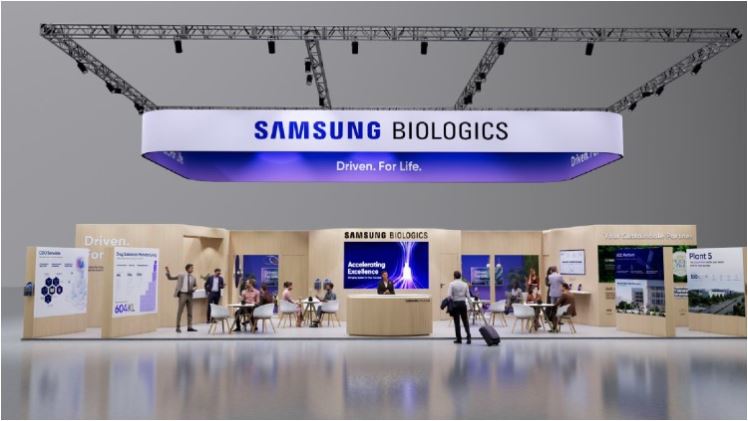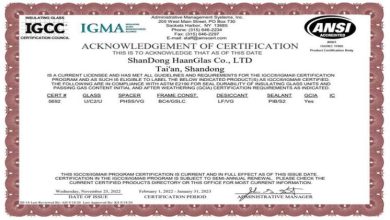CDMO Samsung Biologics Showcases 2 New Drug Development Platforms at CPHI 2023

At the 2023 Convention on Pharmaceutical Ingredients, the world’s largest drugmakers and innovative biotech startups met to discuss the current state of drug development and manufacturing technology. Among these companies was the contract development and manufacturing organization (CDMO) Samsung Biologics. The CDMO had two new platforms to display — S-KiH and S-Glyn™ — as well as broader expansion plans to discuss.
“Samsung Biologics will showcase how it is technologically and operationally prepared to meet the varying needs of global pharma companies and biotechs of all sizes,” said a spokesperson for Samsung Biologics leading into the event.
“We will demonstrate how our strengthened chemistry, manufacturing, and controls services with our new proprietary development platforms — S-KiH and S-Glyn™ — can bring tailored solutions to drug development projects of any characteristics. Furthermore, we will provide insightn of an [antibody-drug conjugate] facility, which will be currens on our enhanced multimodality capabilities with the constructiot good manufacturing practices ready in 2024, and our capacity expansion with the groundbreaking of Plant 5, the first plant in our second Bio Campus.”
S-KiH and Bispecific Antibodies
Samsung Biologics added the S-KiH platform to meet growing demand for developing and manufacturing bispecific antibody therapeutics.
Bispecific antibodies act like multitasking tools. They’re capable of engaging with two different targets at the same time, making them powerful options for treatments in diseases like cancer.
In the human body, these bispecific antibodies can be incredibly useful. For example, one arm of the antibody might be designed to attach to a diseased or cancerous cell, while the other arm could attract and activate immune cells. This dual action allows the bispecific antibody to not only mark the harmful cells, but also to recruit and direct the body’s immune system to attack those cells.
“BsAbs can simultaneously bind two separate and unique antigens (or different epitopes of the same antigen) and have shown promise in addressing infectious diseases, autoimmune disorders, and cancer,” wrote Woosuk Jung, lead scientist in the Antibody Technology Lab at Samsung Biologics, in a recent white paper.
“The BsAb market is expected to grow at a [compound annual growth rate] exceeding 30%. While demand is increasing for this technology, many organizations face several inherent challenges in its adoption, including batch-to-batch variability, mAb dominance, a complex patent landscape, and the industry’s relative inexperience in working with BsAbs.”
To deal with these challenges, the CDMO designed S-KiH, with KiH referring to “knobs-into-holes” technology. The platform is specially designed to overcome issues with heterodimer formation. This is the process by which two different molecules, usually proteins, come together to form a pair, or a “dimer.” Essentially, two different pieces, each with their own unique shape and function, join together to create a new unit that can perform a specific task.
This process is particularly important in the context of bispecific antibodies, where two different parts of an antibody are joined together. Each part is designed to bind to a different target, and their joining into a heterodimer ensures the antibody functions properly.
“After comprehensive experimentation, we achieved a remarkable over 85% heterodimer formation rate, which surpasses conventional KiH technology by over 10%. This breakthrough not only improves titers but also ensures superior batch-to-batch consistency,” wrote Jung.
S-Glyn™ and N-Linked Glycans
N-glycan, short for N-linked glycan, is a complex sugar molecule attached to a protein through a nitrogen atom. The structure and composition of N-glycans can vary greatly, and they play essential roles in the function and stability of proteins.
For CDMOs, the control and modification of N-glycans on therapeutic proteins can improve efficacy, stability, and safety. Technologies like Samsung Biologics’ S-Glyn™ platform, which allows for the modulation of N-glycans, are therefore vital for biopharmaceutical research and development.
N-glycans can affect how a drug moves through the body, how long it stays effective, and how it interacts with different cells and tissues. They can also help stabilize a drug and make sure it works as intended, guiding it to the right place in the body, such as a tumor in cancer treatment, and ensuring that it attacks the disease more efficiently and with fewer side effects on healthy cells.
S-Glyn™ is designed to optimize cell culture conditions and process parameters, and to assess antibody-dependent cellular cytotoxicity and complement-dependent cytotoxicity. This involves screening various media and additives to enhance cell culture environments, thereby improving the growth and productivity of cells used in drug production, then using thorough, comprehensive comparability studies and analyzing extensive data to determine critical quality attributes.
The CDMO’s goal in implementing this platform is to maximize quality and efficiency early in the drug development process via thorough investigation of the best development avenues to pursue for a given drug.




